Introduction
LED tubes have become a popular choice for lighting solutions due to their energy efficiency, longevity, and environmental benefits. When it comes to LED tubes, TUBU LED and Philips LED are two well-known brands in the market. In this article, we will compare and evaluate the features, performance, and overall quality of TUBU LED and Philips LED tubes to determine which one is better suited for your needs.
What are LED Tubes?
Before we dive into the comparison, let’s first understand what an LED tube is. LED tubes, also known as LED light tubes, are lighting devices that can replace traditional fluorescent tubes. They consist of light-emitting diodes (LEDs) that emit light when current passes through them—designed to provide energy-efficient lighting with better performance and longevity.
LED tubes offer several advantages over fluorescent tubes. They are more energy efficient, last longer, and contain no mercury, making them environmentally friendly. LED tubes also provide better light quality with improved brightness, color rendering, and flicker-free. They are commonly used in commercial buildings, offices, schools, hospitals, and other indoor spaces where fluorescent lighting has traditionally been used. LED tubes can be easily installed by replacing existing fluorescent tubes and retrofitting the fixture with an LED ballast bypass or LED-compatible ballast.
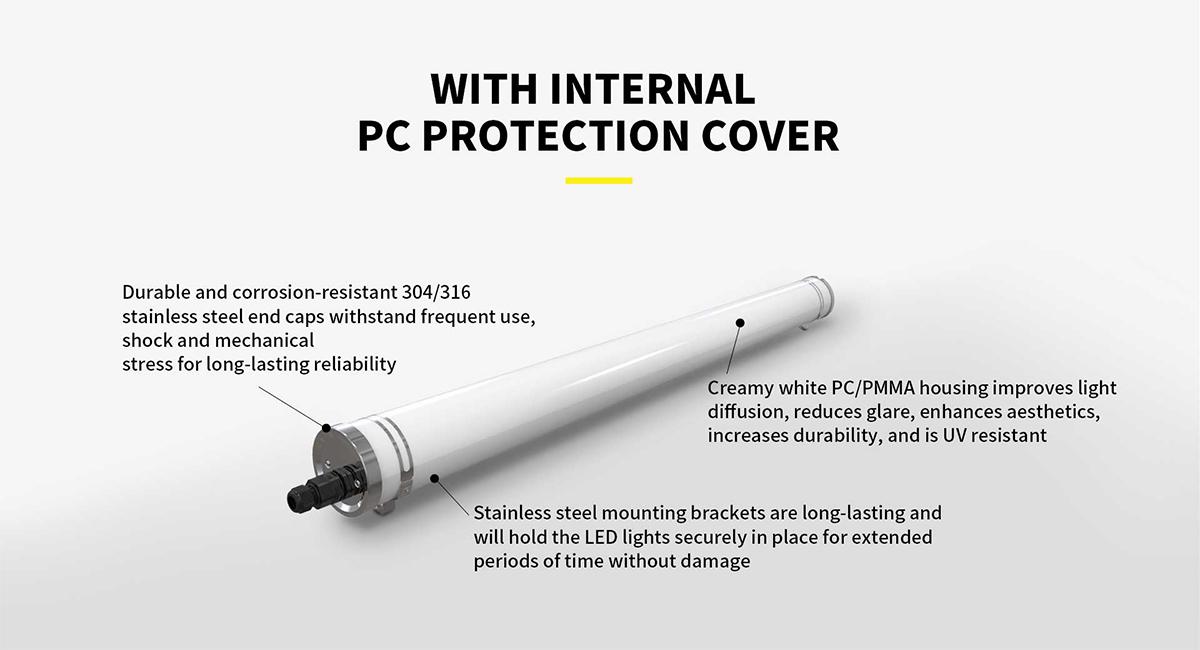
TUBU LED: Overview
TUBU is a professional LED lighting manufacturer certified by ISO 9001 and ISO 14001. With 10 years of experience, TUBU focuses on the research and development of various types of LED lights, which can be customized according to customer needs. The product range includes LED tri-proof lights, LED plant lights, LED farm lights, LED industrial and mining lights, LED sea sweeping lights, LED floodlights, LED street lights, LED aquarium lights, etc. Having an experienced sales team and engineers ensures high-quality service and expertise.
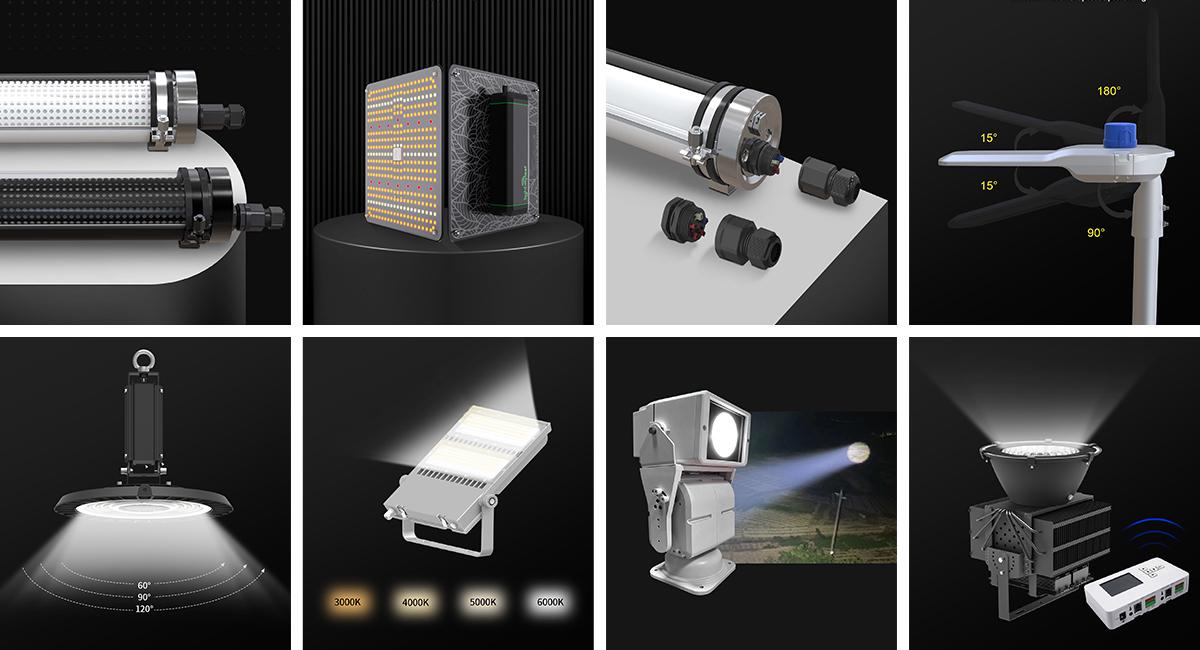
Philips LED: Overview
Philips is one of the oldest and globally renowned lighting brands that produces a wide range of products including LED lighting solutions. Philips LED tubes are recognized for their quality, innovation, and advanced features. The brand is known for producing reliable, high-performance LED tubes. Signify products under the Philips brand cover the complete range of lighting applications, from home, office, and industrial to street lighting, horticulture, sports, and more.
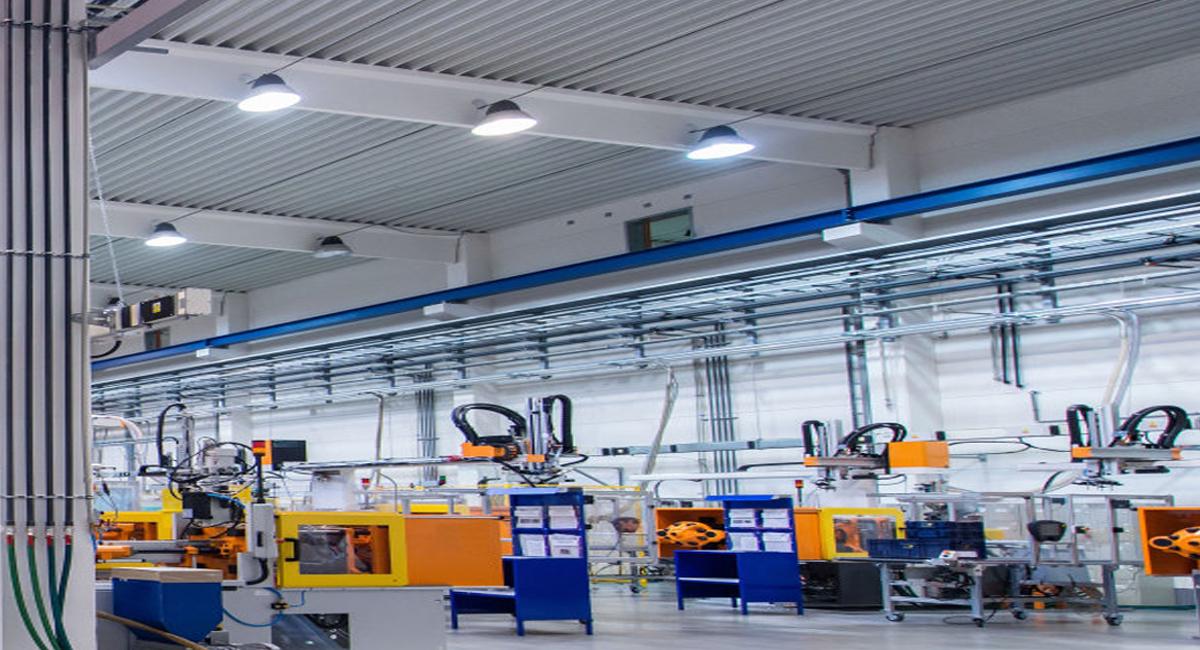
The Comparison Of TUBU LED And Philips LED
When purchasing LED light tubes, price is an important factor to consider. Compared with Philips LED tubes, TUBU LED tubes are generally more competitively priced, ranging from $20-40. However, it is necessary to consider the specific model and features of the LED tube, as the price may change accordingly.
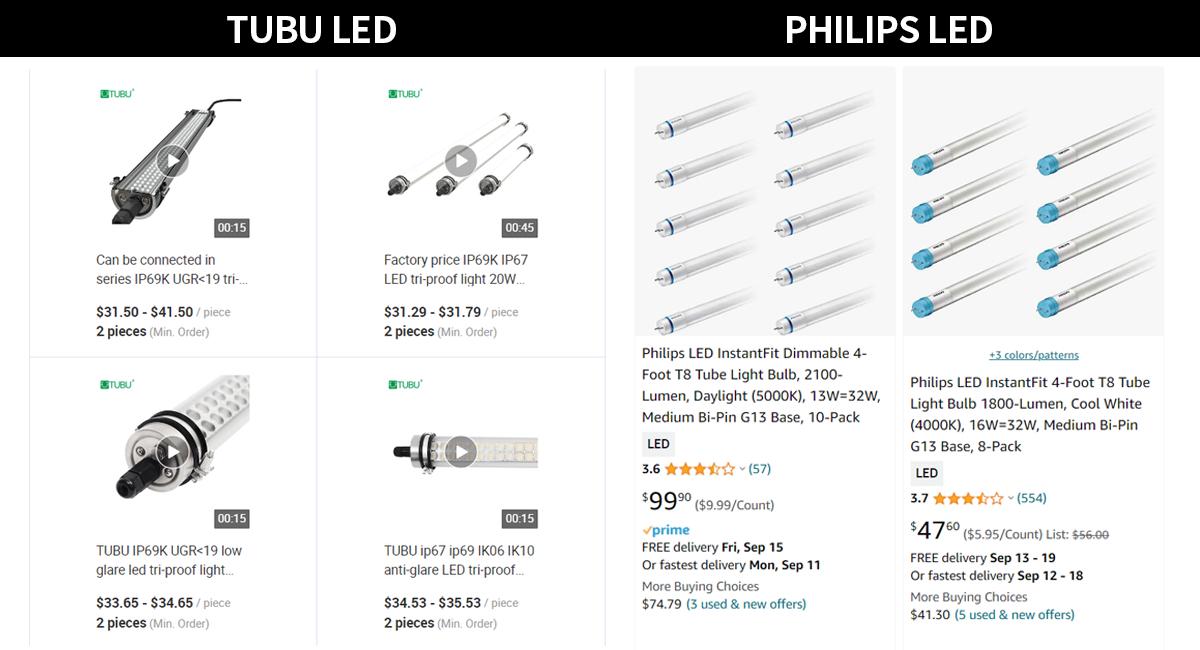
Both TUBU LED and Philips LED tubes are designed to be very energy efficient. They use much less energy than traditional fluorescent tubes, lowering your electricity bill. The energy efficiency of TUBU's LED lamps reaches 170LM/W, while the energy efficiency of Philips LED lamps reaches 150LM/W. TUBU’s LED tubes are slightly more energy efficient compared to Philips LED tubes.
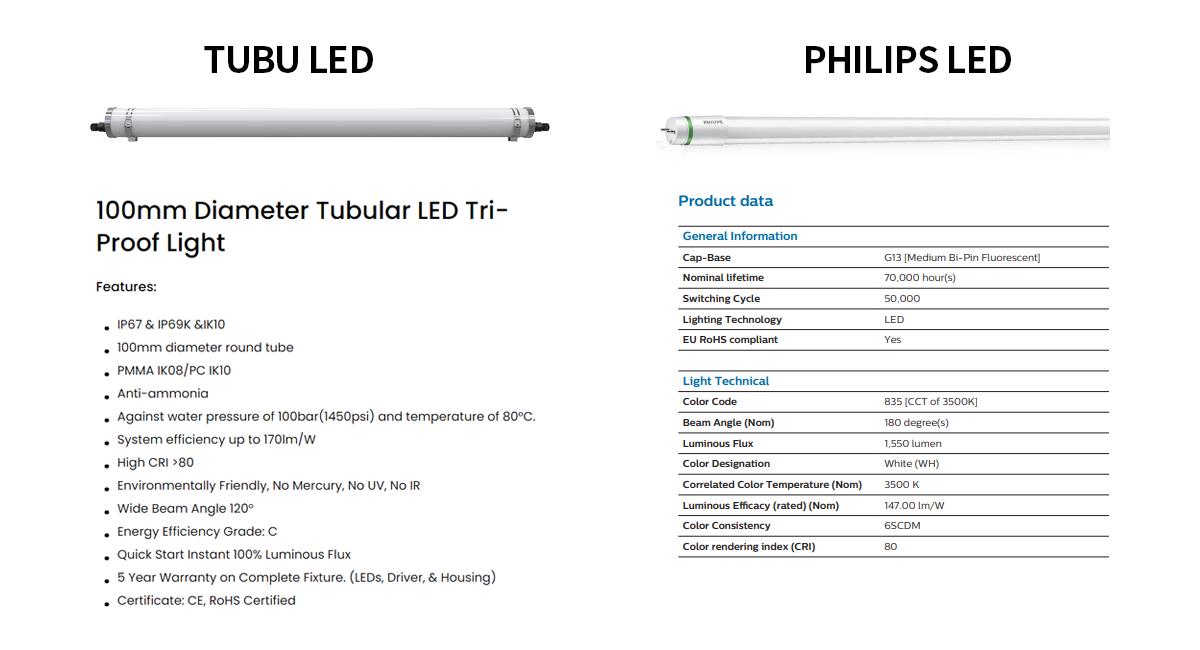
Brightness and color temperature are important factors in lighting. TUBU LED tubes are known for their exceptional brightness and color rendering, with a CRI of over 80, ensuring clear, vibrant lighting. The DALI dimming version of TUBU allows adjustment of four different color temperatures: 3000K, 4000K, 5000K, and 6000K. On the other hand, Philips LED lights are also very bright, with an average color rendering index of 80, and the color rendering index of individual products can reach 83. Provides a variety of color temperatures such as 3500K, 5000K, 4000K, and 6500K, suitable for various environments.
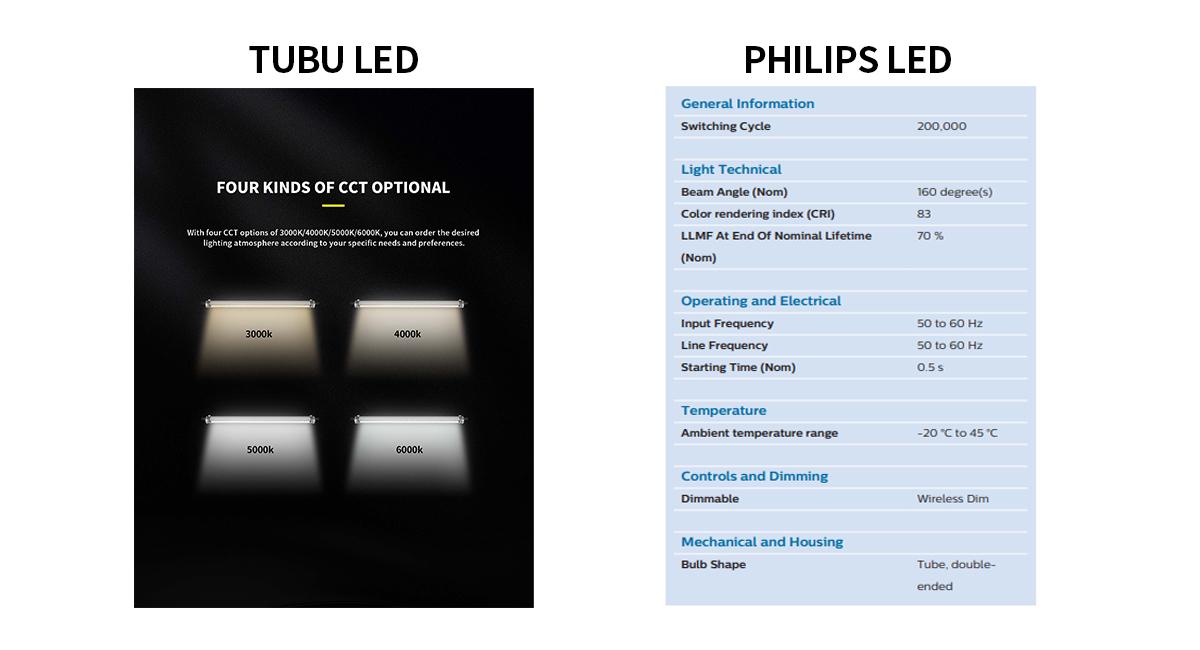
LED tubes are known for their long lifespan, and both TUBU LED and Philips LED tubes are no exception. TUBU LED tubes typically have a lifespan of around 50,000 hours, while Philips LED tubes boast an even longer lifespan of up to 60,000 hours. This means fewer replacements and reduced maintenance costs in the long run.
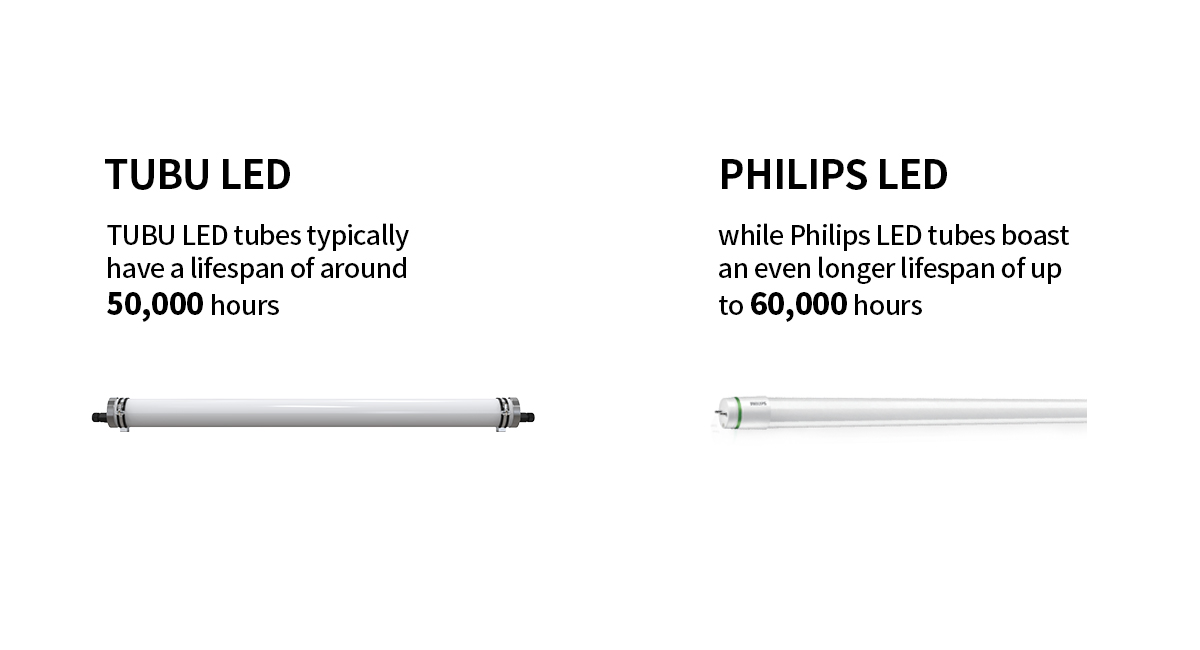
Installing LED light tubes can be a hassle-free task with the right products. TUBU LED tubes are specifically engineered to seamlessly fit into most standard light fixtures, making retrofitting a breeze. The inclusion of a quick wiring port adds to the convenience, making the wiring process simple and hassle-free. Additionally, these LED tubes can be connected in series, allowing for a simplified control system when multiple lamps are needed. On the other hand, Philips LED tubes are designed to be double-ended, which further streamlines the installation process. However, it's essential to check the specifications and compatibility requirements before making a purchase.
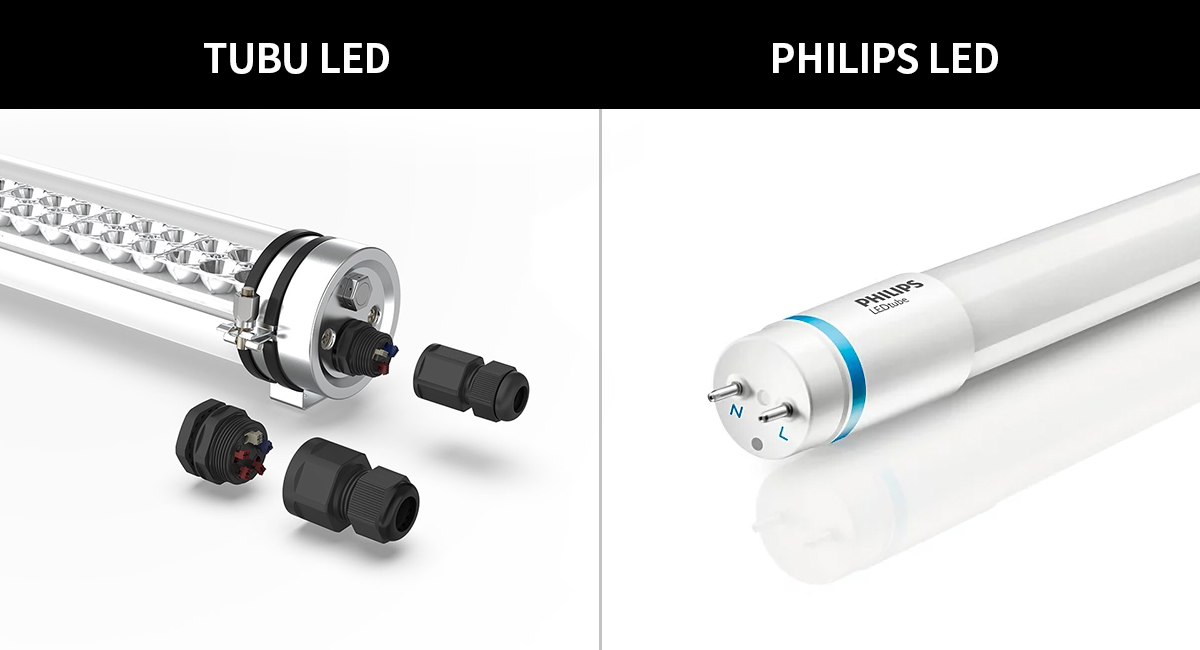
Warranty and customer support are key factors to consider when purchasing LED tube lights. TUBU LED offers a 5-year warranty on its products and provides responsive customer support to address any inquiries or questions and product customization. Philips LED also offers a 5-year warranty on its LED tubes and has a reputable customer support system.
Conclusion
After comparing TUBU LED and Philips LED tubes based on various factors such as price, energy efficiency, brightness, longevity, compatibility, and warranty, it can be seen that both brands offer reliable, high-quality LED tubes. Choosing between TUBU LEDs and Philips LEDs ultimately comes down to your specific requirements, budget, and personal preference.
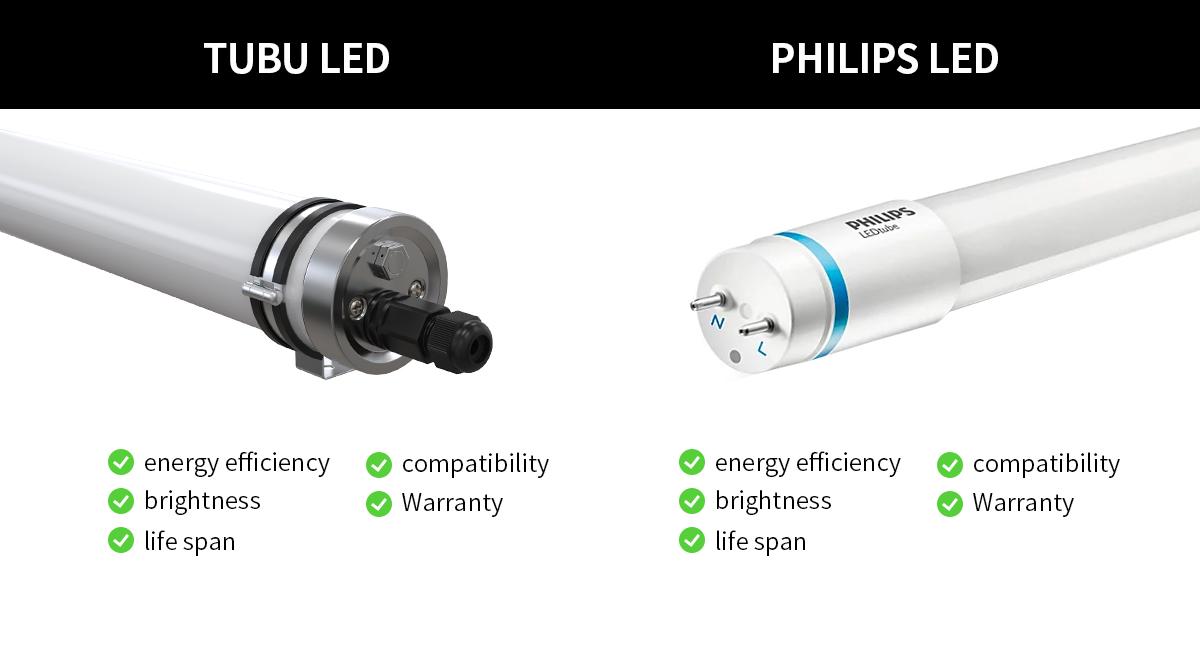
FAQ
Yes, TUBU LED tubes are designed to be compatible with most existing fixtures, making installation hassle-free.
It depends on the specific model of TUBU LED tubes. Some models may offer dimmable options, while others may not.
Philips LED tubes are available in both ballast-compatible and ballast-bypass options, providing flexibility for different installations.
TUBU LED offers outdoor-rated LED tubes specifically designed for outdoor applications. It's important to choose the appropriate model for outdoor usage.
Yes, Philips LED tubes can be recycled. It's recommended to check the local recycling facilities or consult the manufacturer for proper disposal methods.
